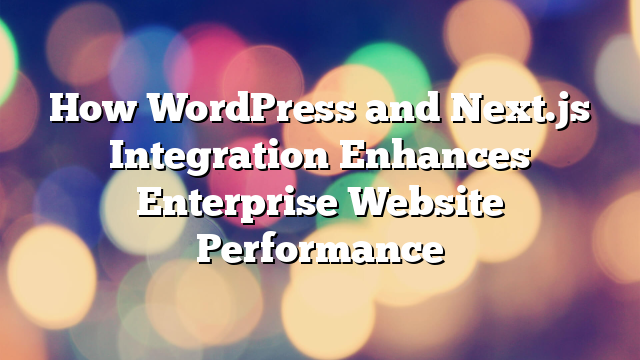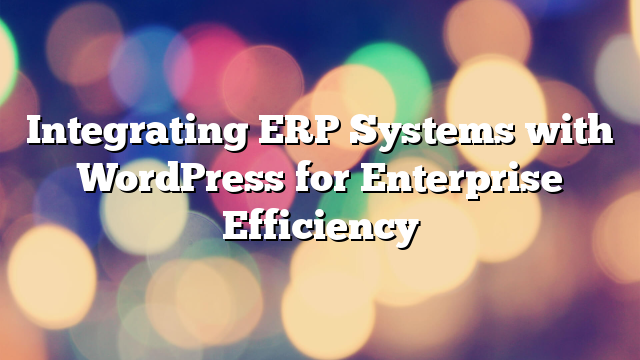How WordPress and Next.js Integration Enhances Enterprise Website Performance
11.02.2025

Enterprises require fast, scalable, and secure websites to stay ahead in the digital world. Traditional WordPress setups sometimes struggle to meet modern performance demands, but integrating WordPress with Next.js offers a powerful solution. This combination merges the flexibility of WordPress with the speed and efficiency of a React-based front-end framework. In this article, we explore how WordPress and Next.js integration enhances enterprise website performance.
1. Lightning-Fast Page Load Speeds
Next.js enables server-side rendering (SSR) and static site generation (SSG), significantly improving page load speeds. By serving pre-rendered pages, enterprises can deliver faster experiences to users, reducing bounce rates and enhancing engagement.
2. Improved SEO Rankings
Search engine optimization (SEO) is crucial for enterprise websites. With Next.js, pages are rendered on the server before being delivered to the user, ensuring that search engines can easily crawl and index content. This leads to improved visibility and higher rankings in search results.
3. Headless WordPress Flexibility
By using WordPress as a headless CMS, enterprises can manage content efficiently while delivering it via Next.js. This decoupled architecture provides greater flexibility in front-end development without compromising the ease of content management within WordPress.
4. Enhanced Security
Traditional WordPress sites are often targeted by cyber threats. By integrating WordPress with Next.js, enterprises can reduce security risks since the front-end does not directly expose WordPress to the public. This adds an extra layer of protection against attacks.
5. Scalability for High-Traffic Websites
Enterprise websites need to handle large amounts of traffic without performance degradation. Next.js, when combined with a content delivery network (CDN), allows for seamless content distribution, ensuring fast load times regardless of user location.
6. API-Driven Content Delivery
WordPress and Next.js integration relies on APIs such as REST API and GraphQL, allowing enterprises to distribute content across multiple platforms, including mobile apps and IoT devices. This makes content delivery more efficient and adaptable to various digital touchpoints.
7. Better Developer Experience
Next.js offers a modern development environment with features like automatic code splitting, image optimization, and incremental static regeneration (ISR). This enables developers to create high-performance web applications while maintaining an efficient workflow.
Conclusion
Integrating WordPress with Next.js provides enterprises with a high-performance, secure, and scalable solution for their websites. By leveraging the strengths of both platforms, businesses can deliver an exceptional digital experience to their users.
At AllWebDev, we specialize in WordPress and Next.js integration for enterprise solutions. Contact us today to enhance your website’s performance.



